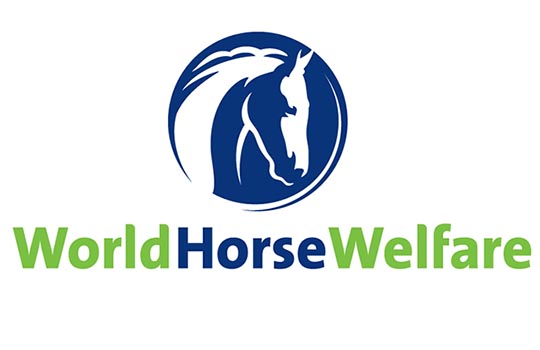Purpose. Welfare. Responsibility – that’s HorsePWR. For all the facts on horse welfare in British racing, visit horsepwr.co.uk.

Equine welfare in British horseracing
Horseracing in Britain is among the world’s best regulated animal activities.
Responsibility for the care of our animals rests with everyone in the sport. From the people who independently govern and regulate racing, through to racecourses, the sport’s participants and the 6,000 stable staff whose role it is to care for the 20,000 + horses who race over the course of a year, British horseracing is run by people with a deep love of horses. 
Our common objective when it comes to welfare is for a British racing industry with agreed, transparent, world-leading standards of equine care for the whole life of our horses; a commitment to innovate and make ongoing, measurable improvements based on clear evidence; delivered through a coherent, proactive strategy with the full engagement of our sport.
How are horses cared for on a raceday? Watch this video and go behind the scenes to find out.

“World Horse Welfare does not accept the claim that horses are unwilling participants in sport. Horses bred to compete will rise to the challenge, as anyone who has ever taken part in equestrian sport knows. This notion that sport is bad for horses needs to be challenged – and challenged forcefully. Yes, sport horses are well cared for, but that is no more than one should expect. However, the sheer amount of investment that flows into the horse industry and the resulting research that is conducted on horse health and welfare has done an enormous amount for horses everywhere.”
Roly Owers, Chief Executive of World Horse Welfare
Regulating welfare in British racing
The British Horseracing Authority (BHA) is the Government-recognised, independent body responsible for the regulation of horseracing.
Together with the RSPCA, World Horse Welfare and ten others, the BHA is a signatory of the National Equine Welfare Protocol which was developed by representatives from local and national government, the police, welfare organisations and others with an interest in equine welfare.
The BHA is responsible for setting and enforcing the welfare standards that all participants must adhere to. These standards are embedded in the sport’s rules, raceday regulation, education, licensing and disciplinary procedures, and are enforced by teams of vets, racecourse inspectors, stable inspecting officers and raceday officials.
Read more about the role of the BHA in ensuring the welfare of our horses
How the BHA operates as an independent regulator
The BHA is the independent governing and regulatory body for British racing.
Its Board is comprised of the Chairman and Chief Executive, two Member Nominated Directors and six independent non-executive directors, including two regulatory independent non-executive directors. This means that 60% of the Board is independent, significantly in excess of the 25% requirement stipulated by Tier 3 – the highest tier – of the Code for Sports Governance.
Whilst the BHA works closely and collaboratively with its member organisations, this structure ensures that the BHA is able to act with the highest degree of independence in relation to those matters falling within its constitutional remit, including the regulation and integrity of the sport, and the welfare of its human and equine participants.
An Independent Judicial Panel – led by His Honour Brian Barker CBE QC and operating independently of the BHA Board – holds participants and racecourses to account for breaches of the Rules in place concerning equine welfare, anti-doping and disease control amongst others.
The BHA’s racecourse inspectors operate entirely independently of the courses and provide impartial and expert opinion regarding racecourse safety and any improvements that need to be made to a course. The BHA also employs independent veterinary officers at each fixture, who oversee the work of the racecourse’s veterinary surgeons and ensure the sport’s welfare standards are adhered to.
Indeed, all raceday officials, including the stewards – who are responsible for upholding the rules of racing – act in an independent capacity, allowing them to operate in a manner that ensures the rules are upheld and the welfare of the sport’s participants safeguarded.
Making horseracing safer
The BHA and the entire sport are committed to the constant improvement of welfare standards. Despite British racing’s excellent safety record, we always strive to improve, constantly investing in welfare research and education.
This record of ever-improving safety has been noted by the Government, via the Department for the Environment, Food and Rural Affairs, which recently endorsed the BHA’s regulatory role in relation to the safety of jockeys and horses racing in Great Britain, given that overall racehorse welfare is improving and fatalities at racecourses are falling.
Find out more about the work of the BHA and the sport to continually make racing safer

The British Horseracing Authority (BHA) is responsible for the safety of jockeys and horses at races in this country. The BHA works with animal welfare organisations like the RSPCA and World Horse Welfare to keep racecourses as safe as possible for horses.
According to the BHA the overall equine fatality rate in British racing has reduced by one-third in the last twenty years, from 0.3% to less than 0.19% of runners in 2017, the lowest figure on record.
Whole-life care
We take steps to look after horses at all stages of their lives, from the mandatory microchipping and registration of a foal within 30 days of its birth, through to the sport’s own charity – Retraining of Racehorses (ROR) – which rehomes and retrains horses who leave the sport.
Find out more about british racing’s commitment to care of thoroughbreds throughout their whole life
British Racing's Horse Welfare Board
In March 2019, the BHA announced the appointment of the former President of the Royal College of Veterinary Surgeons and past Chairman of World Horse Welfare, Barry Johnson, as the independent chair of a new Horse Welfare Board.
In February 2020, the Welfare Board published its five-year strategic plan for the welfare of horses bred for racing.
The strategy focuses on the ambition that every horse bred to race should lead – and be seen to lead – “a life well-lived”. The strategy includes traceability for horses bred for the sport, a strong focus on safety and wellbeing, a more confident and proactive approach to communications and the industry’s biggest ever data project.
The full Welfare Board membership is as follows:
Barry Johnson, Chair
Tracey Crouch MP
Caroline Davies, Raceday Services Director, Racecourse Association (RCA)
Simon Knapp, Veterinary Advisor, RCA
Charlie Liverton, Chief Executive, Racehorse Owners Association (ROA)
Seamus Mullins, Trainer
James Given, Director of Equine Health & Welfare, BHA
Alison Enticknap, Programme Director, BHA
